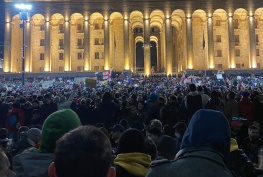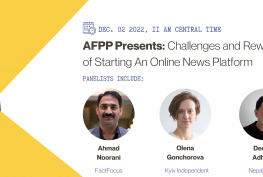By Mugambi Mutegi
Despite years of giving short speeches to my colleagues at high school – every Friday morning to the residents of the dormitory I supervised and regularly in the school’s main hall – public speaking has not really been my thing.
My mornings are definitely not flooded with thoughts such as “I really need to look for a crowd of people to speak to today.”
However, when I have to speak, I take the task seriously; if only to preserve my reputation/ego from suffering self-inflicted obliteration.
So when I was informed that I would be giving a talk on the formation of Kenya’s government to elementary students at a Chicago school, my first question to their teacher, Cynthia Castiglione, was how old her students are.
My self-preservation instincts figured that this was crucial data required to determine how well-read that particular class of students probably was and in effect, how well-prepared I should be.
It turned out the students at Near North Montessori School, on the corner of Division and Cleaver, were 7th graders meaning – 13-year-olds on average.
The students had recently finished learning about how the U.S. government came to be and my talk would give them a chance to pick out similarities and differences between their country’s process and Kenya’s.
I had to have my all facts straight on this one and be ready for some tough questions.
So I polished up on my history, noted down relevant dates and events and on D-Day, made my way to the school.
After briefly introducing myself, I jumped right in and explained how Kenya navigated the years between being under British colonial rule in the late 1880s to when our fourth President was sworn in on March 4th, 2013.
Two students stopped me in the middle of my talk to ask questions which I answered and proceeded to my presentation’s next bullet point.
“Quite a keen group of students,” I thought to myself, inwardly complimenting myself for polishing up on my facts.
Twenty-five minutes of me playing teacher ended with a question and answer session and this is when the class literally lit up.
One student asked why there was tension in Kenya in the months preceding our recently concluded election.
Another young man wanted to find out the meaning of a photo depicting thousands of elephant tusks being torched in Kenya.
The students also asked me to explain why our President – Uhuru Kenyatta – and his deputy – William Ruto -are currently standing trial at the International Criminal Court at The Hague, Netherlands on crimes against humanity charges.
The tricky one of the nearly a dozen questions fielded that morning was “What did you (me) think about America before coming here?”
I had been caught off guard.
After making the class burst out in laughter twice, I was confident I had done a good job of securing my reputation and that I should not let this last question blow if for me.
I mumbled through the first few seconds of my response and when I got on track, I put it this way.
“I watch CNN and watch shows like How I Met Your Mother and therefore I believe I had a good image of how America was in terms of people’s daily lives, politics and things like technological and infrastructural advancements.”
“However, being here offers me a chance to experience the real thing.”
However, I was quick to add a disclaimer that some Western media distort the image of the African continent, a fact exemplified by one of the students who said that all he gets to watch on television are starving children.
In order for them to ensure that they can get a true picture of Kenya and the African continent, I advised the students to consume their news from varying sources and, if possible, travel widely.
I said my goodbyes and caught the next bus to work hoping my talk had been beneficial to the class.
PS: I actually do not watch How I Met Your Mother. I have no idea how that name popped up in my head. Anyway, they laughed and, hopefully, understood what I was trying to explain.




